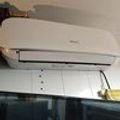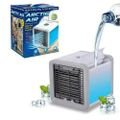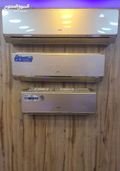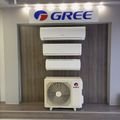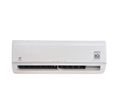Air conditioner buying guide
The Things you should consider before buying an air conditioner
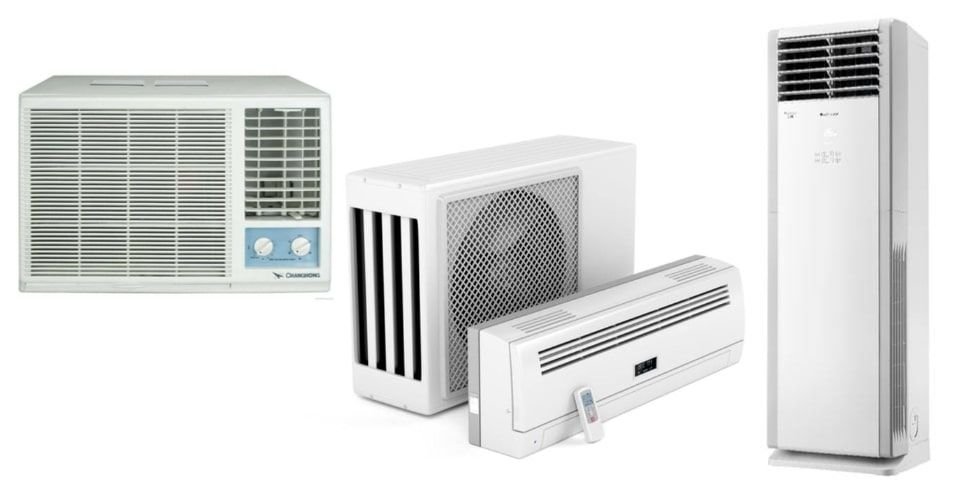
In some cases owning an air conditioner is considered luxurious. However this isn’t completely true; AC’s are sometimes considered a necessity in places where temperature reaches more than 40 Celsius and in cold areas since new air conditioners can be also used as heater in winter.
Markets are full of different types and sizes of air conditioners. We will help you here to limit your options if you need to buy one, starting off with types of air conditioners.
Air conditioners types
Window Air Conditioners Units:
A very common type especially for cooling in summer, it’s designed to be assembled through windows, installing it takes less effort than othen AC's, it has eveyrthing you need in one piece, but it will be in constant need for cleaning and maintenance. Moreover, it’s considered to produce a relatively loud noise compared to other types.
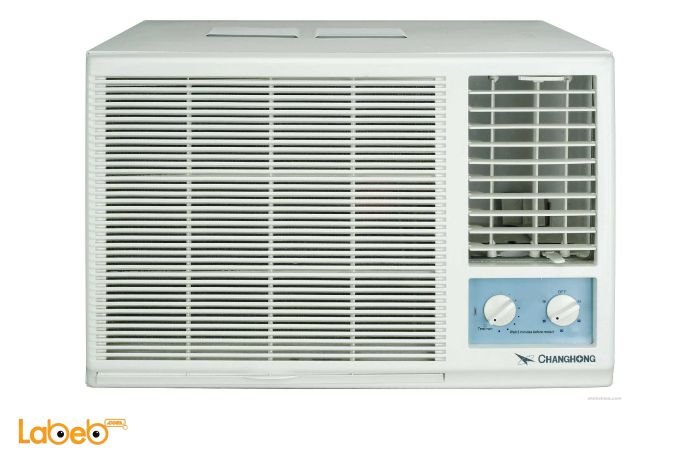
Split Unit Air Conditioner:
This type consists of 2 units, external and internal. The external unit- with the compressor- is installed outside the house; can be either placed on the roof of the house or hanged by a carrier on the wall outside. It is connected to the internal unit through pipes and electric cables which expels warm air. The internal unit is installed indoors more than 2 meters high. installed this AC takes a lot of time and effort compared to other types, and needs a professional worker. However, it produces little noise. These air conditioners are mostly used in bedrooms and small rooms, they are available in different sizes, some are designed for small rooms, others are designed for big or storage rooms. They are considered effective and energy efficient.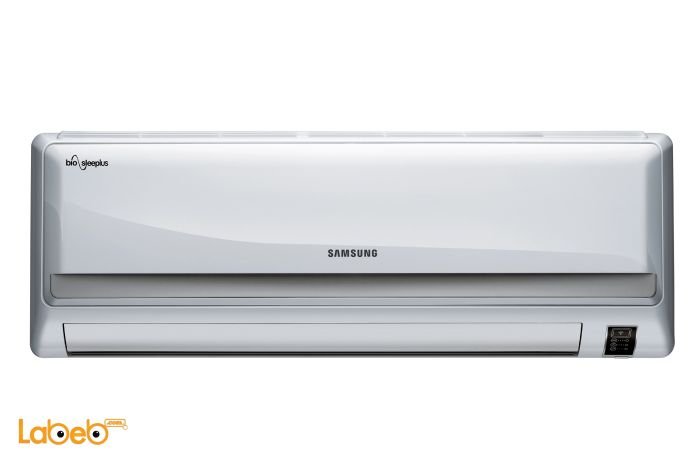
Tower Air Conditioner:
This type has different shapes, consisting of 2 units; internal and external, but the internal unit in this type can be placed anywhere in the room without having to hang it on a wall. The external unit must be installed outside to expel warm air as well. Tower air conditioners are good in cooling. However, it’s not recommended to buy one for small rooms because they are mostly designed to cool large rooms.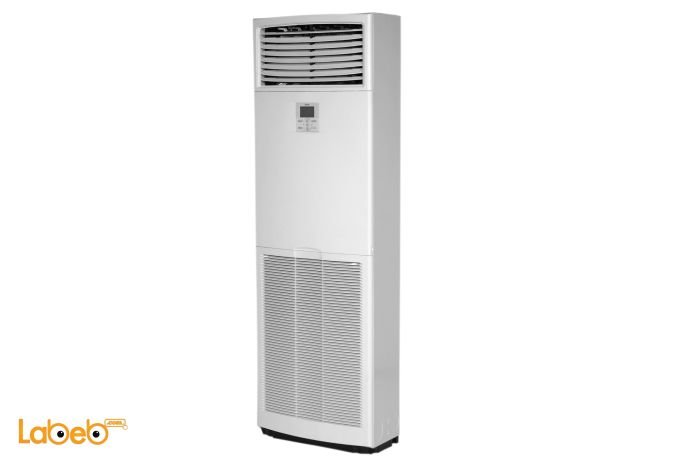
Ceiling Air Conditioner:
These air conditioners are perfect for large rooms, as some built-in air conditioners are not enough for the room size. They are excellent in cooling and saving space because they are fixed “as is” in the ceiling. That’s why they are more expensive than other types. However, this type demands more effort to be installed. It is usually used in public places, restaurants, and hospitals. Sometimes they need prior design to have them fixed later in the building.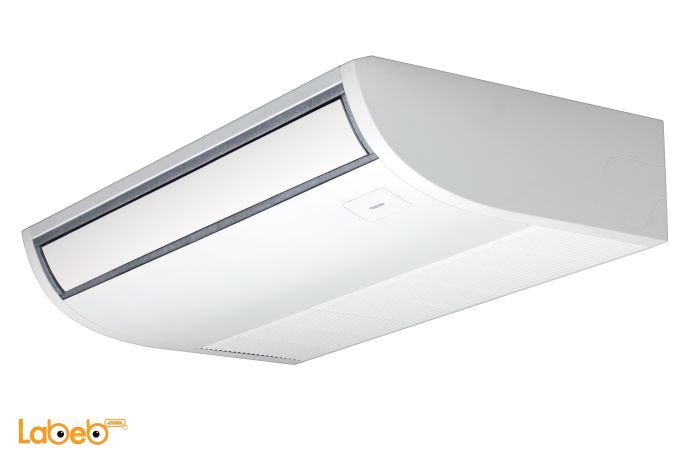
Central Air Conditioner:
Central air conditioners can cool and heat many rooms in the house without extensions to distribute air, and it is very cost effective. These conditioners circulate air through a system of supply and return ducts instead of distributing air through internal extensions. This type is more energy efficient as there is no need for long extensions which usually end up leaking air. Moreover, you can turn them on in each room separately; saving energy in other rooms that don’t need to be heated or cooled.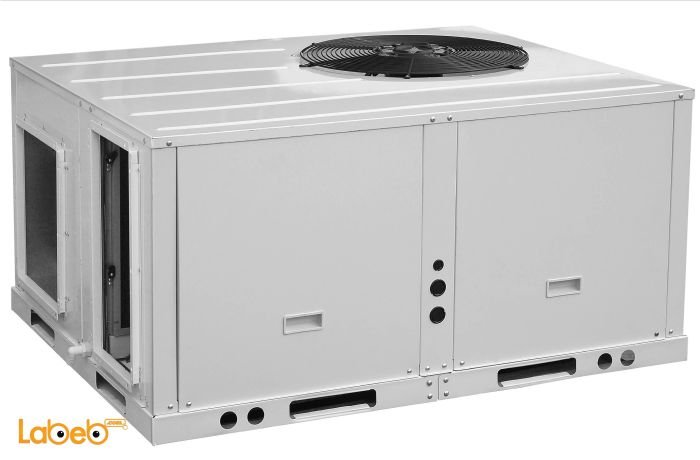
Portable Air Conditioners:
A relatively small air conditioner that can be easily moved from one place to another; it only needs an electrical supply and an outlet pipe to pass the water out (if there’s no window in the room, you can use a bucket to collect the water coming out of the conditioner). This type is convenient for university students and families that are constantly moving or living in rented flats.
After listing the types of air conditioners, we will help you choose the suitable one for you. Take a look at these important points you should consider before buying an air conditioner:
How to choose the most suitable air conditioner for you:
Please take these 2 points into consideration before deciding which type and size of air conditioner you want to buy:
The purpose of owning an air conditioning: cooling, heating, or both?
Because air conditioners are usually placed in the room for many years it’s wise to consider the purpose of your air conditioner before choosing one; whether you need it for heating, cooling or both. This depends on the cold temperatures in your city; if it gets really cold, you probably want to think of an air conditioner that can do both heating and cooling which sometimes cost less than air conditioners that do either.
Size of the room you want to air condition:
Do you want to an air condition for a small bedroom, an open living room, or the whole house?
The size of the area you want to heat or cool down will guide you in choosing the size and type of the air conditioner you need, if you want to cool multiple rooms you can have a multiple system to divide cooling temperatures in the rooms. Window Air Conditioner Units have15 to 20 thousand thermal units, but you must take into consideration the height of the ceiling and size of the windows in your house. We recommend you increase the capacity of the units if the conditioner is placed in sunny room or kitchen.
To make things simple, the best way to choose a suitable air conditioner for extremely hot rooms is to calculate the size of the room you want to place the air conditioner in, and then multiply the result by 250 or 300, the result indicates the number of thermal units you need. Note that room size is calculated through this equation: Length x width x height.
How to calculate the capacity of the air conditioner depending on the room size?
International agreements adopted The British Thermal Unit (BTU), which is equivalent to 1.055 Joule; it indicates the cooling capacity, or the amount of heat needed to raise the temperature of one pound of water (equivalent to 0.45 KG) one Fahrenheit degree (equivalent to 0.56 Celsius).
The efficiency or capacity of air conditioners is measured in tons; one ton is equivalent to 12000 thermal units which is the minimum efficiency of any air conditioner.To further understand how to choose an air conditioner scientifically, here’s an example with theoretical room sizes. Assume you have a room with 40 m2 area and 5 meters high, the room size is (40x5= 200 cubic meters).As stated before, multiply the size of the room by 250 to know the units needed in moderate temperature rooms, 200x250= 50000 thermal units; equivalent to 4 tons.
This table shows the number of needed units based on hypothetical room sizes:
|
Room size |
Thermal units/ Air conditioner’s efficiency |
|
100-150 |
5000 |
|
150-250 |
6000 |
|
250-300 |
7000 |
|
300-350 |
8000 |
|
350-400 |
9000 |
|
400- 450 |
10000 |
|
450- 550 |
12000 |
|
550- 700 |
14000 |
|
700- 1000 |
18000 |
Some tips for a better performance and energy saving:
After showing you how to calculate the ideal efficiency depending on the room size, we will review some important tips that might help lower the capacity needed to cool down the room, thus lowering the cost of using the air conditioner and reducing energy, these tips are:
- Delay activities that demand the use of air conditioner till the evening or the early morning; like: washing the dishes or cleaning the house.
- Plug window frames with corks or sponges, or better use dual insulated windows and frames.
- Wooden floors help insulate heat thus keeping room’s temperature steadier, this lowers the efficiency needed to air condition the whole room.
- Use energy efficient lighting as it doesn’t produce much heat; this helps the room to stay cool if you’re cooling it down.
- Plug gaps around the air conditioner to prevent air from leaking inside.
- Clean the filters of the air conditioner regularly. (Follow the company’s instructions).
- Plant trees in the east side of your house to prevent heat or direct sun from passing through windows.
- Be patient and give the cooling unit some time to cool the house, as it takes some time to remove humid air first; the room won’t get cool faster if you decrease the temperature of the conditioner more, this only costs more in the end without doing any good.
- Set the temperature key adequately; very low temperatures will make the air conditioner constantly working, so it is better to choose an adequate temperature to make sure the air conditioner works intermittently and maintain the average temperature needed.
By now, this article included all the important aspects you need to consider before choosing an air conditioner, from air conditioner types to calculating air conditioners’ efficiency based on the room size.
- [[PropertyDescription]] [[PropertyValue]]

